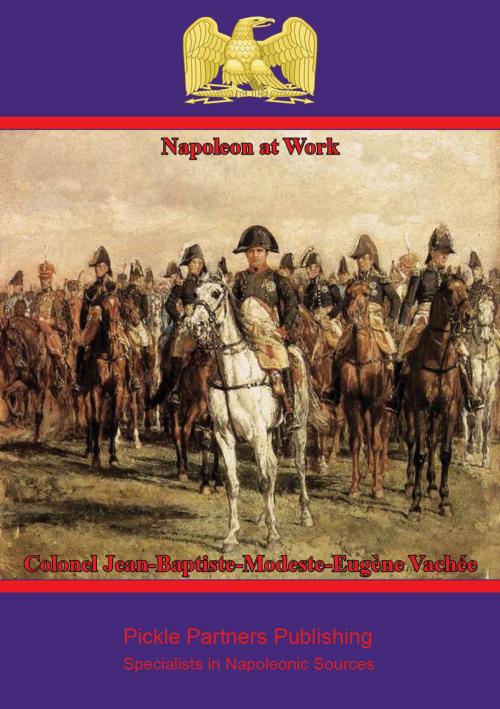| Author: | Colonel Jean-Baptiste-Modeste-Eugène Vachée | ISBN: | 9781908902672 |
| Publisher: | Wagram Press | Publication: | May 1, 2012 |
| Imprint: | Wagram Press | Language: | English |
| Author: | Colonel Jean-Baptiste-Modeste-Eugène Vachée |
| ISBN: | 9781908902672 |
| Publisher: | Wagram Press |
| Publication: | May 1, 2012 |
| Imprint: | Wagram Press |
| Language: | English |
At the turn of the 20th Century, the historical section of the French General Staff began to produce some of the most valuable and detailed studies of the Napoleonic period, and particularly Napoleon’s method for success in war. This upsurge in French military writing, and particularly of the period of greatest French success, was, not coincidentally, foreshadowed the upcoming hostilities with Germany during which Colonel Vachée was to serve in the French artillery. He wrote “Napoleon en Campagne”, of which this book is the English translation, to try to codify the rules of warfare for his contemporary French officers.
Using the 1806 Jena campaign (an interesting counter viewpoint to Field Marshal Von der Gotlz’s - Jena to Eylau written from the Prussian point of view of the same campaign) as an example of Napoleon’s method of victory, Vachée gives a detailed account of the Emperor’s closest collaborators: Marshal Berthier, Generals Bacler d’Albe, Bailly de Monthion, Gourgaud, Montholon, Caulaincourt, his secretaries Bourienne, Méneval and Fain et al. He illustrates the methods used to inspire his men from the highest Marshal of the Empire to the lowliest grognard, and the punishments for failure, both on and off the battlefield.
An excellent book, useful for the study of command in wartime and the Napoleonic methods in particular.
At the turn of the 20th Century, the historical section of the French General Staff began to produce some of the most valuable and detailed studies of the Napoleonic period, and particularly Napoleon’s method for success in war. This upsurge in French military writing, and particularly of the period of greatest French success, was, not coincidentally, foreshadowed the upcoming hostilities with Germany during which Colonel Vachée was to serve in the French artillery. He wrote “Napoleon en Campagne”, of which this book is the English translation, to try to codify the rules of warfare for his contemporary French officers.
Using the 1806 Jena campaign (an interesting counter viewpoint to Field Marshal Von der Gotlz’s - Jena to Eylau written from the Prussian point of view of the same campaign) as an example of Napoleon’s method of victory, Vachée gives a detailed account of the Emperor’s closest collaborators: Marshal Berthier, Generals Bacler d’Albe, Bailly de Monthion, Gourgaud, Montholon, Caulaincourt, his secretaries Bourienne, Méneval and Fain et al. He illustrates the methods used to inspire his men from the highest Marshal of the Empire to the lowliest grognard, and the punishments for failure, both on and off the battlefield.
An excellent book, useful for the study of command in wartime and the Napoleonic methods in particular.















